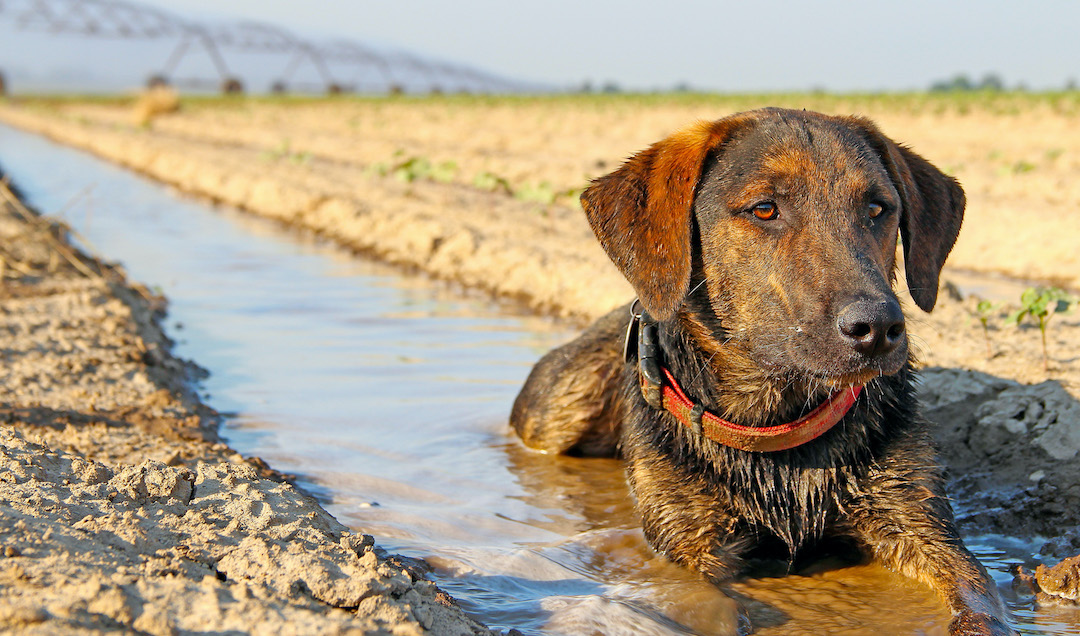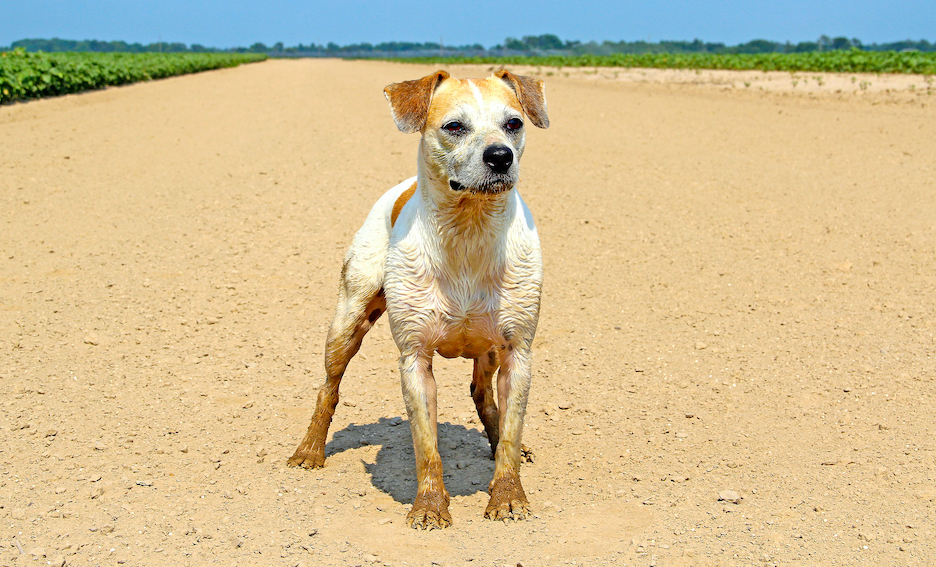Dogs of War: Landowners Sue State Over Property Rights v. Hunting Tradition
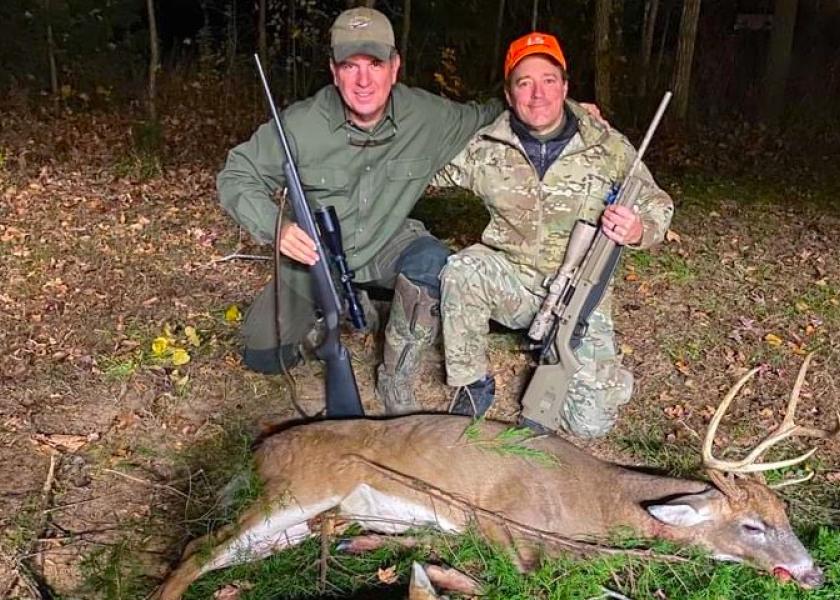
There are few sounds as sweet as the timeless symphony of hounds on a hunt, and few fundamentals as sacrosanct as property rights. Yet, the bounds of traditional hunting have spilled onto private land and may conclude in a tangled court battle over property lines, dogs, right of retrieval, and compensation.
Do hunters have an absolute right to enter private land to retrieve deer dogs even if expressly forbidden access by the property owner? Doubling down, do hunters have an absolute right to enter private land with dogs during a raccoon or fox hunt, regardless of the owner’s stance? The answer is “yes” to both questions, according to statute, but the ramifications are packed with nuance for both landowner and hunter.
Welcome to Virginia’s festering landowner-hunter conflict and a lawsuit launched by three rural property owners, including farmers, against the state’s wildlife department. If prolonged and persistent hunting dog encroachment affects a farming operation, is compensation in order? Whose ox is gored?
“Open Access”
At 7 a.m., on a winter’s Saturday morning in 2014, producer Jim Medeiros heard a raucous chain of barks and walked outside his farmhouse to the sight of 15-20 hunting dogs encircling his chickens. Looking down his rural Dinwiddie County driveway in southeast Virginia, Medeiros spotted a hunter carrying a shotgun on a shoulder sling, wearing camouflage and a blaze orange hat.
Medeiros called out: “What are you doing?”
The stranger’s response stunned Medeiros: “I have permission to be on this property.”
Medeiros was angry, but simultaneously bewildered. “What in the world? Some guy I’d never seen in my life was straight-faced claiming to have a right on my land? I went down to the local Department of Wildlife Resources (DWR) office to get somebody to explain what this guy was talking about, and sure enough, I was told by officials that the guy was completely legal.”
“In an instant,” Medeiros says, “everything I thought I knew about private property got turned on its head.”
And what did Virginia DWR cite as the rationale for a hunter to enter private land? State law. Specifically, 18.2-136, “Right of certain hunters to go on lands of another,” within the Code of Virginia, the body of laws passed by the state assembly and signed by the governor.
Passed in 1938, the text of 18.2-136 blindsided Medeiros: Fox hunters and coon hunters, when the chase begins on other lands, may follow their dogs on prohibited lands, and hunters of all other game, when the chase begins on other lands, may go upon prohibited lands to retrieve their dogs, falcons, hawks, or owls but may not carry firearms or bows and arrows on their persons or hunt any game while thereon. The use of vehicles to retrieve dogs, falcons, hawks, or owls on prohibited lands shall be allowed only with the permission of the landowner or his agent. Any person who goes on prohibited lands to retrieve his dogs, falcons, hawks, or owls pursuant to this section and who willfully refuses to identify himself when requested by the landowner or his agent to do so is guilty of a Class 4 misdemeanor.
“My entire farm (White Oak Meadows) is open access to hunting dogs and even hunting,” Medeiros exclaims. “At first, I did not believe the law and I never imagined it could exist. I thought the fish and game people had misunderstood me, but the more I learned, the more surreal the entire situation became. I grew up where if something is not yours, you ask first, but I was being told the exact opposite.”
On 143 acres of rolling ground just east of the Piedmont, roughly an hour’s drive from Richmond’s direct marketing opportunity, Medeiros, 50, keeps 700-1,000 free-range layer and broiler chickens, 55 head of cattle, 15 beehives, and 150 guinea hens for pest control. His land is posted and bordered by a mix of high tensile fencing, creek frontage, common woods, and open farmland.
Each hunting season, from roughly October to January, Medeiros deals with an average of five dog retrievals on property and suspects a far higher number of unseen retrievals. The consistent presence of dog packs often results in a financial loss for Medeiros, he explains. “One dog is no big deal, but when you have dogs in high numbers, the effect on my livestock is tough, and I’m talking about everything from dead chickens to injured cattle or calves, not to mention the stress and chaos. This is happening in real-time; nobody is taking responsibility; and the domino effect hurts my entire farm business when you factor in production, customer orders, and time. A lawsuit is the only way I have to fight this.”
“I’m not anti-hunting at all. I’m not anti-dog at all. I’m against a fundamental breach of rights.”
“Don’t Mean a Thing”
Brass tacks, what does 18.2-136 allow on Medeiros’ farmland or on any owner’s private property?
Initially, it gives a green light to “fox hunters and coon hunters” to continue a hunt on private land—regardless of whether permission is granted. Pared down, the law enables armed fox or coon hunters to walk onto private ground.
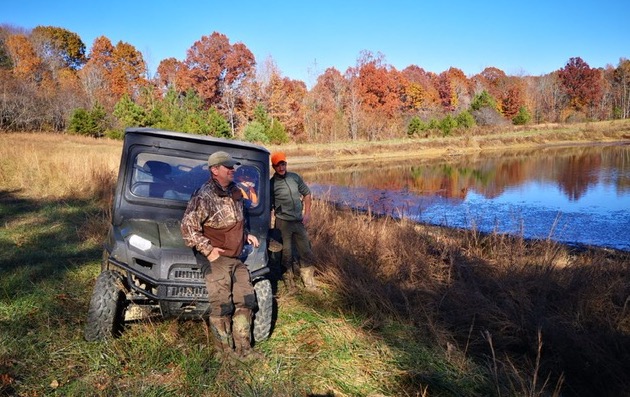
Further, it allows any other type of hunter to retrieve a dog from private land, so long as the hunter is unarmed and on foot. Additionally, the hunter must provide verbal identification if asked by the landowner. The law provides no reference as to time allowed on private land, i.e., whether minutes or hours, the window of access to private land appears to be an as-long-as-it-takes allotment.
Medeiros says the law’s latitude is untenable for landowners: “Without permission, deer hunters walk on my land to get their dogs and they are armed with guns. And if I do see them, who cares if I can ask their name, because how am I supposed to know if they’re telling the truth? How am I supposed to know if they’re even genuinely retrieving a dog? The government is taking away my right to utilize my private land as I wish, and that can’t be done without some kind of compensation.”
“I know the boots-on-the-ground game wardens support the landowners, but once you get past the game wardens and get into the DWR office and bureaucracy, those people don’t want to hear a thing about our problems. The more the public finds out about the basics of this controversy, the more shocked they are to find out fences and posted signs don’t mean a thing.”
(DWR was contacted by Farm Journal and declined to answer questions about the property rights/retrieval lawsuit, citing pending litigation. Additionally, DWR did not respond to specific questions related to 18.2-136 and hunting regulations.)
Can of Worms
Kirby Burch, chief executive officer of the Virginia Hunting Dog Alliance, says the right of retrieval is vital for hunting dog owners and is rarely an issue of consequence for landowners or farmers. “The numbers speak for themselves, but we’ve got around 260,000 hunters in our state and anywhere from 160,000-185,000 of those hunt with dogs. On average, each year DWR issues six violations statewide related to right to retrieve laws. That’s a clear indicator that almost all hunters do things the right way.”
“There are always bad apples in any endeavor and hunting is no different, but right of retrieval laws have been on Virginia books since 1938, and anyone who has ever hunted with a dog understands why.”
“For example, at 2 a.m. in the pitch black of night, how can a hunter even identify an absentee landowner, or how can he get permission in the middle of the night to get a dog that has treed a coon or gotten lost in a swamp. Also, no landowner wants to be awakened up for any of that.”
“Generally, Virginia landowners support right of retrieval, and we promote a hunter ethic that asks for permission and establishes landowner relations prior to hunting season.”
Ultimately, 18.2-136 protects landowners, Burch insists. “The law is also there to make sure a landowner can’t be sued by a hunter who is denied access to get back what belongs to him. If you take away right to retrieve, you’re opening a can of worms.”
“Missing the Boat”
Medeiros is one landowner, among three, suing DWR, and he is represented by the Pacific Legal Foundation (PLF) and attorney Daniel Woislaw. The lawsuit, Woislaw stresses, is against the state—and not Virginia hunters. “No one should have statutory authority to enter private property even when told no by the landowner. No one, by law, should have the right to follow fox hounds or coon dogs onto someone else’s land to hunt.”
At the heart of Woislaw’s argument, he points to a central question: What is private property?
“Private property is the ability to decide when and how others can come and go. Private property includes the right to sell, make money, and decide who can access. When the government, through DWR, takes away the right of a property owner to decide who can enter your land, then that is a form of an easement. We’re suing for just compensation. The court needs to say this is a taking and a jury should determine the value of the taking.”
Burch considers the lawsuit to be “agenda-driven” and says it has no “merit.”
“This is a fight pushed by commercial hunters because if they don’t get dogs off their land, they have to fence their property. This is a fight the average person can find tough to understand, but there’s no way this is a taking. I don’t know if this will eventually go to court, but there could be an impact well beyond hunting dogs. Why? Different states have varying interpretations of right to retrieve, and this law has repercussions for retrieval of livestock or wounded game animals.”
“The Pacific Legal Foundation is generally libertarian, and we often agree with much of their policy work, but in this case they’re missing the boat.”
Tradition and Rights
A stone’s throw from the North Carolina line, Robert Pierce operates Blue Wing LLC in Halifax County, Va., across 1,026 acres of rolling hills. A certified tree farm with 200,000 long leaf pines, the Blue Wing property is also a hunting club, dotted with roughly 30 acres of food plots and ponds, a shooting range. The 7-mile perimeter, including 2.5 miles of state highway, is not fenced, but is clearly posted.
Blue Wing, according to Pierce, consistently has been a target of trespass, under the auspices of right to retrieve. “It’s not an exaggeration to say we’ve had people parked in the past all along our road frontage claiming to be picking up their dogs. They would strategically release dogs along our property on the west end and those folks lined up on the highway on the south and east end of the property. They say they’re not hunting—just retrieving.”
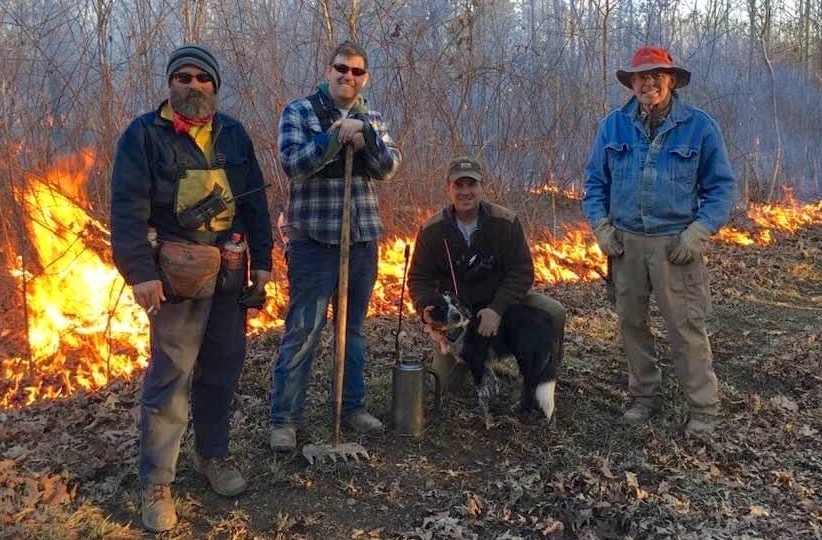
Pierce steadily encounters unannounced hunters, often armed, on Blue Wing land insisting to be searching for dogs—an unverifiable explanation. He considers Virginia’s right to retrieve statute as “government-approved trespass,” and a breach of common sense. “According to the law, I’m supposed to just sit back and watch people come on and off our land, even though I have no idea if they’re retrieving or not? I have no right to question them, other than to ask for a name and hope they are willing to identify themselves, even though I won’t have any idea if the name is genuine? And they are allowed to stay on our land for as long as the retrieval process takes with no time limit? I don’t see how fair-minded people can look at this and call it reasonable.”
Blue Wing is bordered by two hunting clubs, but Pierce, 55, says both are diligent to ensure dogs are kept off Blue Wing land. “There are no cross words between us, and they work hard to do things right, but there are still plenty of bad actors around us. Everyone is concerned about the lawsuit, but it’s not against dog hunting, just the right to retrieve.”
Across a lifetime hunting game with dogs and working on farms in his youth, Pierce is highly familiar with the nuances of private land security from both sides of a posted sign. “I remember the days when we hunted large tracts of land with dogs and sometimes they veered onto private land—it was inevitable. We got permission to retrieve and didn’t assume we had a complete right to someone else’s land.”
However, Burch says right to retrieve statutes are based in “common sense” law and tradition. “Take away right to retrieve and you’ll cause far more problems in the long run. Almost every dog hunter out there does what is right and that is proven by DWR statistics. Right to retrieve is a deep part of our dog hunting tradition.”
Pierce sees an impasse between tradition and constitutional law. “Our politicians talk out of both sides of their mouths and offer proposals with no teeth, but they won’t wade into this fight. Therefore, we have no choice but to go down the road of a lawsuit. The Virginia Hunting Dog Alliance has been vocal about right to retrieve being a tradition. The Constitution doesn’t protect tradition, it protects rights.”
To read more stories from Chris Bennett (cbennett@farmjournal.com — 662-592-1106), see:
Cottonmouth Farmer: The Insane Tale of a Buck-Wild Scheme to Corner the Snake Venom Market
Tractorcade: How an Epic Convoy and Legendary Farmer Army Shook Washington, D.C.
Bagging the Tomato King: The Insane Hunt for Agriculture’s Wildest Con Man
How a Texas Farmer Killed Agriculture’s Debt Dragon
While America Slept, China Stole the Farm
Bizarre Mystery of Mummified Coon Dog Solved After 40 Years
The Arrowhead whisperer: Stunning Indian Artifact Collection Found on Farmland
Where's the Beef: Con Artist Turns Texas Cattle Industry Into $100M Playground
Fleecing the Farm: How a Fake Crop Fueled a Bizarre $25 Million Ag Scam
Skeleton In the Walls: Mysterious Arkansas Farmhouse Hides Civil War History
US Farming Loses the King of Combines
Ghost in the House: A Forgotten American Farming Tragedy
Rat Hunting with the Dogs of War, Farming's Greatest Show on Legs
Misfit Tractors a Money Saver for Arkansas Farmer
Government Cameras Hidden on Private Property? Welcome to Open Fields
Farmland Detective Finds Youngest Civil War Soldier’s Grave?
Descent Into Hell: Farmer Escapes Corn Tomb Death
Evil Grain: The Wild Tale of History’s Biggest Crop Insurance Scam
Grizzly Hell: USDA Worker Survives Epic Bear Attack
Farmer Refuses to Roll, Rips Lid Off IRS Behavior
Killing Hogzilla: Hunting a Monster Wild Pig
Shattered Taboo: Death of a Farm and Resurrection of a Farmer
Frozen Dinosaur: Farmer Finds Huge Alligator Snapping Turtle Under Ice
Breaking Bad: Chasing the Wildest Con Artist in Farming History
In the Blood: Hunting Deer Antlers with a Legendary Shed Whisperer
Corn Maverick: Cracking the Mystery of 60-Inch Rows


